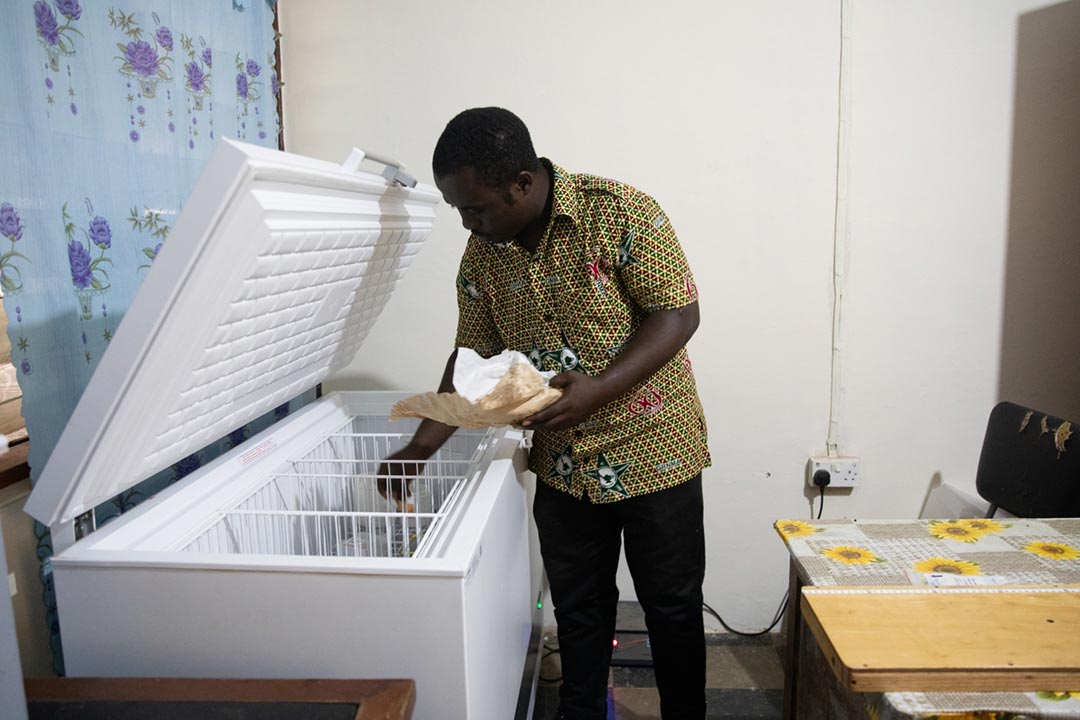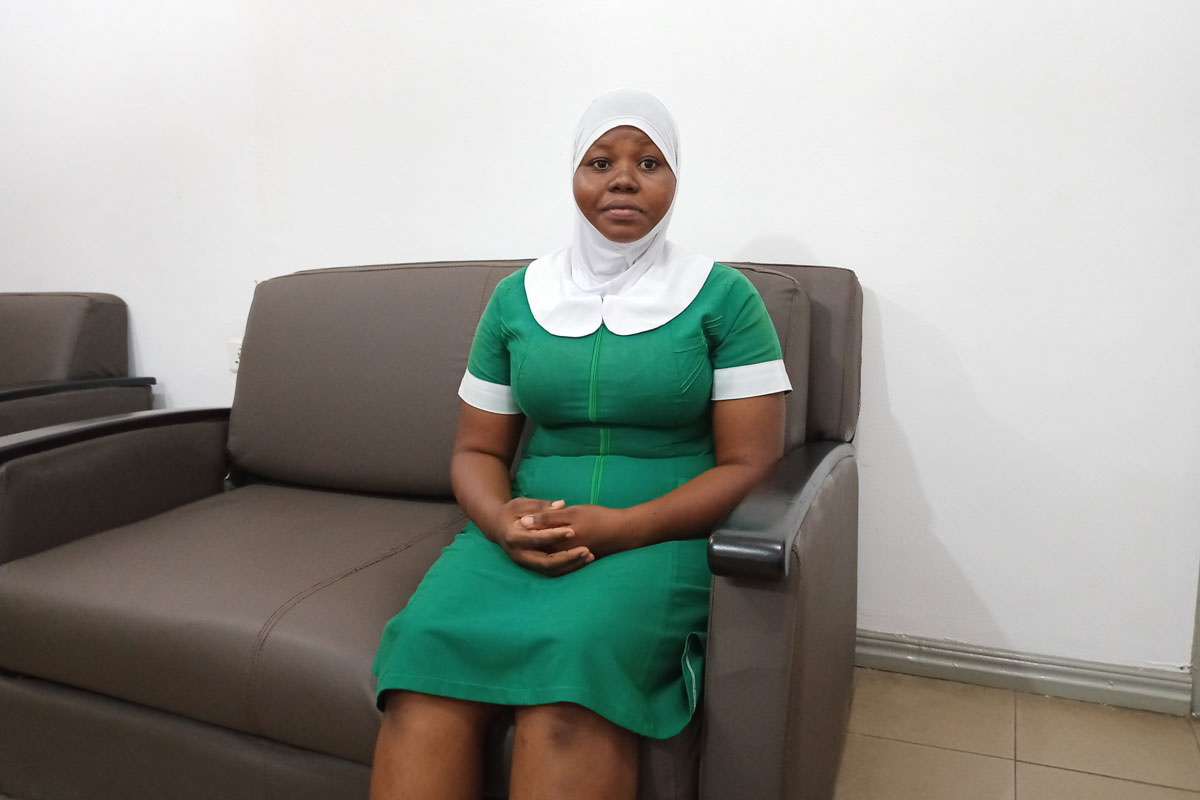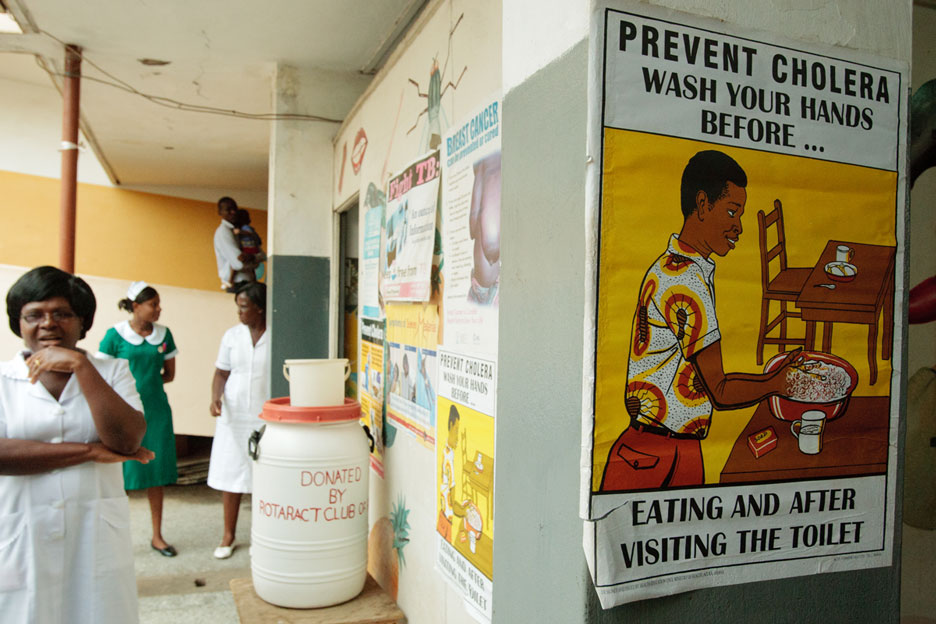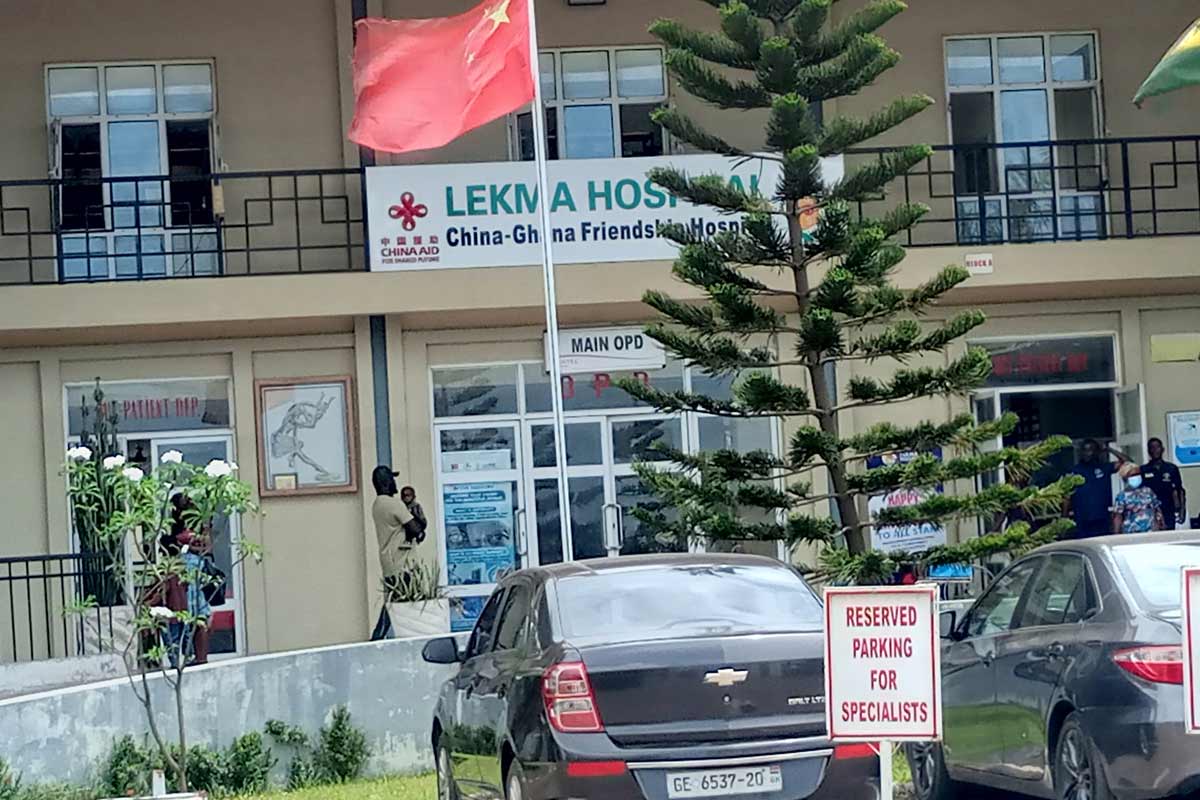Veterans of Ghana’s immunisation programme look back
At the World Health Assembly of 1974, countries committed to a programme of routine childhood vaccination. In 1978, Ghana put its pledge into practice. The years since have seen profound, if not always linear, progress.
- 28 May 2024
- 6 min read
- by Francis Kokutse

Abraham Muso's walking stick is a souvenir of a more dangerous time.
Muso, 32, rests his weight on it as he threads his way between vehicles at a busy junction in Accra's Liberation Road, asking for alms. Disabled by polio in childhood, he missed out on schooling and eventually wound up on the streets.
"I was born in Menuso, near Hohoe, and I am not sure my parents knew they had to protect me with vaccination." That used to be a common story. Through the 1990s, Ghana's official polio tally averaged 43 cases per year, an improvement from an annual average of 113 through the 1980s.
Death and disability from many contagious diseases have gone into retreat as Ghana's routine immunisation programme, inaugurated in the 1970s, has gained ground. Having recorded a staggering 140,821 cases of measles in 1975, Ghana saw just 88 cases in 2023. There have been no cases of tetanus since 2021, and no cases of diphtheria since 2020.
“Now you hardly see measles. Of course, we get occasional pockets of outbreaks in some communities, [but] today, if you want a newly trained physician to diagnose measles, they may not be able to do so, because they probably have not seen one.”
– Kwame Amponsa-Achiano, programme manager, Ghana’s Expanded Programme for Immunization (EPI)
Progress hasn't always been linear. Declared polio-free in in 2009, Ghana lost that status a decade later, when type 2 polio resurged – a reminder of the fragility of any immunisation system's hard-won gains.
Still, Ghana's Expanded Programme for Immunization (EPI) has come a very long way since it began rolling out vaccines against polio and tuberculosis in 1978, Kwame Amponsa-Achiano, the current programme manager, told VaccinesWork.
Back then, coverage with available antigens was "minimal," he said – 6% among children under the age of one, according to national data.
1974's World Health Assembly, and the collective resolution to extend routine immunisation to children around the globe, had sparked a shift. Challenges – the creation of a functional vaccine cold chain despite a wobbly electricity supply, for instance – meant the pace of change was slow at first.
"Gradually, we have moved up our coverage," said Amposa-Achiano. "[We] have stagnated around the 90–95% for most antigens," said Amponsa-Achiano. In fact, according to WHO and UNICEF data, Ghana's coverage with the third dose of the diphtheria, tetanus and pertussis-containing vaccine (DTP3), conventionally an indicator of immunisatioin coverage in general, stood at 99% as of 2022. "We are probably one of the flagship programmes in the world and we are proud of that."
When VPDs filled the mortuary
Kwadwo Odei Antwi-Agyei, a former EPI programme manager who joined the EPI in 2003, recalled stories of EPI's early days, recounted by veterans like Moses Adibo, a former director of medical services. Back then, the Ministry of Health first began rolling out DTP and measles vaccines in Accra and Kumasi. Today, children nationwide have access to no fewer than 13 different vaccines.
But even within just the span of Antwi-Agyei's career, the change in public health has been profound. Before he joined the EPI, Antwi-Agyei worked as a medical officer at Komfo Anokye Teaching Hospital in Kumasi. He remembers seeing children dying from measles in great numbers. "It was an eyesore to see them packed on the side veranda, awaiting conveyance to the mortuary by the mortuary man. It was not a pleasant sight."
Have you read?
The loss of the children pushed Antwi-Agyei to seek a path into a career in immunisation and public health. He was posted to the regional capital of what was then Brong-Ahafo, as the Medical Officer in charge of immunisation. The challenges were many. "We did not have adequate numbers [of staff]. We had to do more outreaches to reach a lot of people. And to do that, of course, it meant you needed motorbikes. And then, there the erratic power supply to contend with," he added.
The risks of failure were clear. "If you do not maintain the vaccines at the appropriate temperature, they will go bad. And you will end up vaccinating people to get the numbers, but then, they will not be protected," Antwi-Agyei reflected. To protect the fridges they had – inadequate in number as they were – they bought in protective devices, Uninterrupted Power Supply (UPS) stabilisers.
When thawing ice packs meant a long trip to the regional capital
A retired technical officer, Emelia Okai, who was recruited in the 1980s, recalled that in those days, field work meant spending weeks moving from village to village before returning to base
"At that time, there was only one depot for the vaccines at the regional level in the Eastern region. The team with the vehicle would carry the vaccines in the cold box," Okai said. Health workers would transport vaccines in vaccine carriers to immunisation sessions.
But even the larger cold box could only store vaccines for about three days. When the ice packs started thawing, the team would send drivers or a technical officer to the regional store to bring more ice packs. That way, the vaccinators could stay on and work.
With time, the EPI's reach and infrastructure improved, and, as Amponsa-Achiano remarked, the programme has been able to beat back a lot of vaccine preventable diseases. People like Muso, disabled by polio and relying on sticks or wheelchairs, used to be a much more regular sight, he said.
"This is almost a thing of the past now because of near-eradication of polio from the world," Amponsa-Achiano said.
When every grandmother knew the measles
"Now you hardly see measles," said Amponsa-Achiano. "Of course, we get occasional pockets of outbreaks in some communities, [but] today, if you want a newly trained physician to diagnose measles, they may not be able to do so, because they probably have not seen one."
Amponsa-Achiano, who graduated from medical school in 1999, said that he himself survived measles in the era when grandmothers, and not just doctors, diagnosed the viral infection from experience. In the 1970s and 1980s, measles was considered a threat second to only malaria, he said.
Now Ghana's malaria burden is also in decline, but the work never stops. Amponsa-Achiano pointed to recent EPI-led innovations to extend coverage – vaccination outposts in shipping containers stationed in markets, for instance, to catch people who are in transit all the time. Weekend sessions to improve access for busy parents. More investment in solar-powered fridges for vaccine storage to reach remote areas where grid electricity has become a problem. When it comes to immunisation, no amount of progress justifies complacency.









